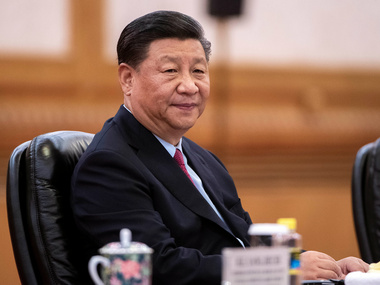The Ministry of External Affairs (MEA) confirmed Wednesday that Chinese president Xi Jinping will visit India on 11 and 12 October to hold an informal summit with Prime Minister Narendra Modi. Slated to be the second such event, the informal summit will be held in Mamallapuram in Tamil Nadu. The first informal summit between the two countries was held last year at the Chinese city of Wuhan, which enabled the two countries to normalise the relations on all fronts after the 73-day standoff between the two militaries at Doka La plateau in 2017. “At the invitation of the Prime Minister, the President of the People’s Republic of China Xi Jinping will be visiting Chennai, India from 11 to 12 October 2019 for the 2nd Informal Summit,” the ministry said. During the summit the two countries will exchange views on deepening India-China Closer Development Partnership, the ministry said. No agreements, Memoranda of Understanding (MoUs) or joint communique will be signed during Jinping’s visit to India. Chinese President Xi Jinping will be accompanied by China’s Foreign Minister and Politburo members, on his visit to India, they said. Modi will hold one-to-one and delegation-level talks with the Chinese president. Meeting between them has no specific agenda, said sources while adding that the focus of the meeting will be on improving people to people contact and on how to maintain peace and tranquillity along the India-China border. The two leaders are also likely to decide dates for the next Special Representative talks. The two leaders had their first inaugural informal summit in Wuhan, China on 27 and 28 April 2018. The forthcoming Chennai Informal Summit will provide an opportunity to the two leaders to continue their discussions on overarching issues of bilateral, regional and global importance and to exchange views on deepening India-China Closer Development Partnership, the EAM said in a statement. Following the announcements of date, Chinese Ambassador to India, Sun Weidong expressed hope that two nations will strengthen their friendship with the upcoming visit. The talks come at a time when India and China were at loggerheads on the former’s abrogation of special status granted to the state of Jammu and Kashmir, which is claimed in its entirety by both India and Pakistan. While India maintained that changing a part of the Indian Constitution, to whatever effect, is the country’s internal matter, China sided with its long-term ally Pakistan and even backed it in raising the matter at theUnited Nations. A closed-door meeting of the UNSC on Kashmir where China maintained the same stand ended without any outcome or statement, in a snub to Beijing and Islamabad. However, just before the formal announcement of Xi’s visit, the country seems to have softened its stance. While responding to questions on Kashmir, China’s foreign ministry spokesperson merely reiterated it to be a bilateral issue between India and Pakistan. But more importantly, China refrained from mentioning the UN Security Council resolution and UN charter, as it had done earlier in its statements on Kashmir, including at the UN General Assembly last month. It is also incidental that the moderation in the Chinese stance comes at a time when Pakistan prime minister Imran Khan and army chief General Qamar Javed Bajwa are in Beijing, to further cement the close ties between China and Pakistan. On 27 September, Chinese Foreign Minister Wang Yi had raised the Kashmir issue in the UN General Assembly. He said the Kashmir issue is a “dispute left from the past and should be properly and peacefully resolved based in accordance with the UN Charter, UN Security Council resolutions and bilateral agreements”. “No actions that would unilaterally change the status quo should be taken. As a neighbour of both India and Pakistan, China hopes to see the dispute effectively managed and stability restored to the relations between the two sides,” he said. Meanwhile, the MEA said it expects that the summit will provide the leaders with an opportunity to continue discussions on various issues between the two neighbouring fast-growing economies. Like the Wuhan event, the two leaders are expected to hold freewheeling talks on various disputes and differences between India and China, but a joint statement is unlikely to be released. The choice of the venue, too, holds historic significance. While Xi chose Wuhan, a commercial centre which also has the famous villa of China’s ruling Communist Party founder Mao Zedong, where he hosted many foreign leaders, India on its part decided to host the Chinese president in a historically important city, Mamallapuram. As a report in The Hindu pointed out, Mamallapuram was an important town of the erstwhile Pallava dynasty, under whose reign the earliest recorded security pact between China and India was forged. The newspaper claimed that in the early 8th century, China had asked Pallava king Rajasimhan’s (or Narasimha Varma II) help to counter Tibet, which had by then emerged as a strong power posing a threat to China. At a time when Beijing is in the throes of a trade war with the United States, this subtle hint, concerning the importance of at least manageable relationship with India, will not be lost on the Chinese side. With inputs from PTI
Chinese President Xi Jinping will visit India from 11 to 12 October for the second informal summit with Prime Minister Narendra Modi, the External Affairs Ministry announced on Wednesday
Advertisement
End of Article


)

)
)
)
)
)
)
)
)



